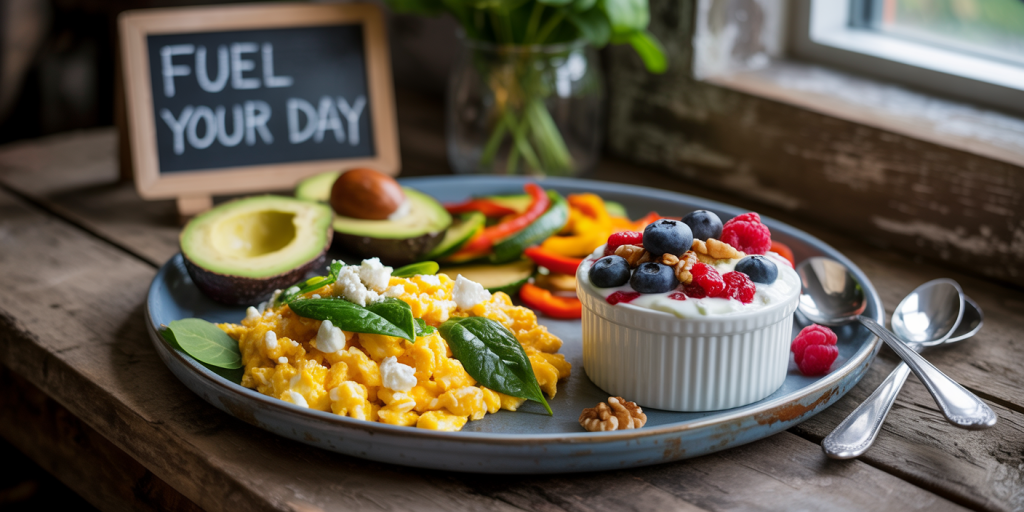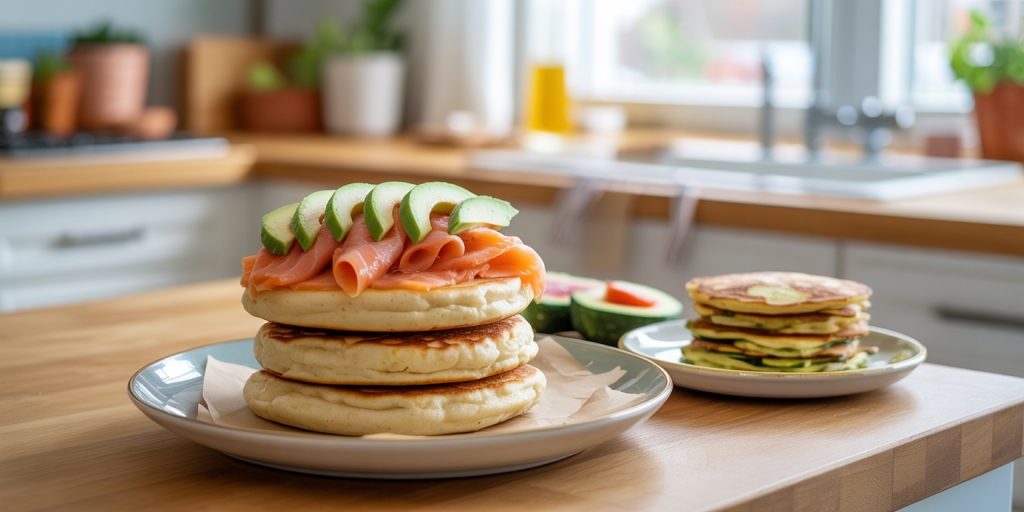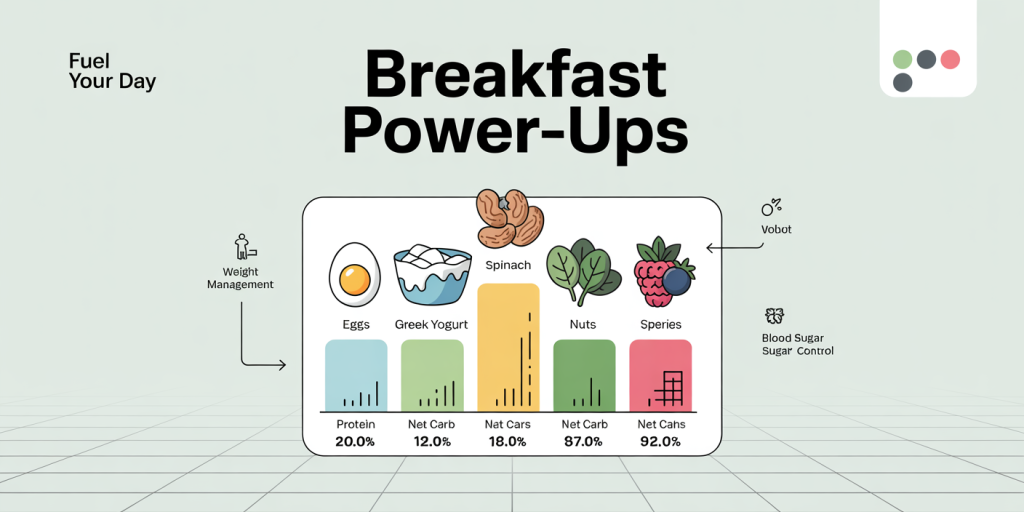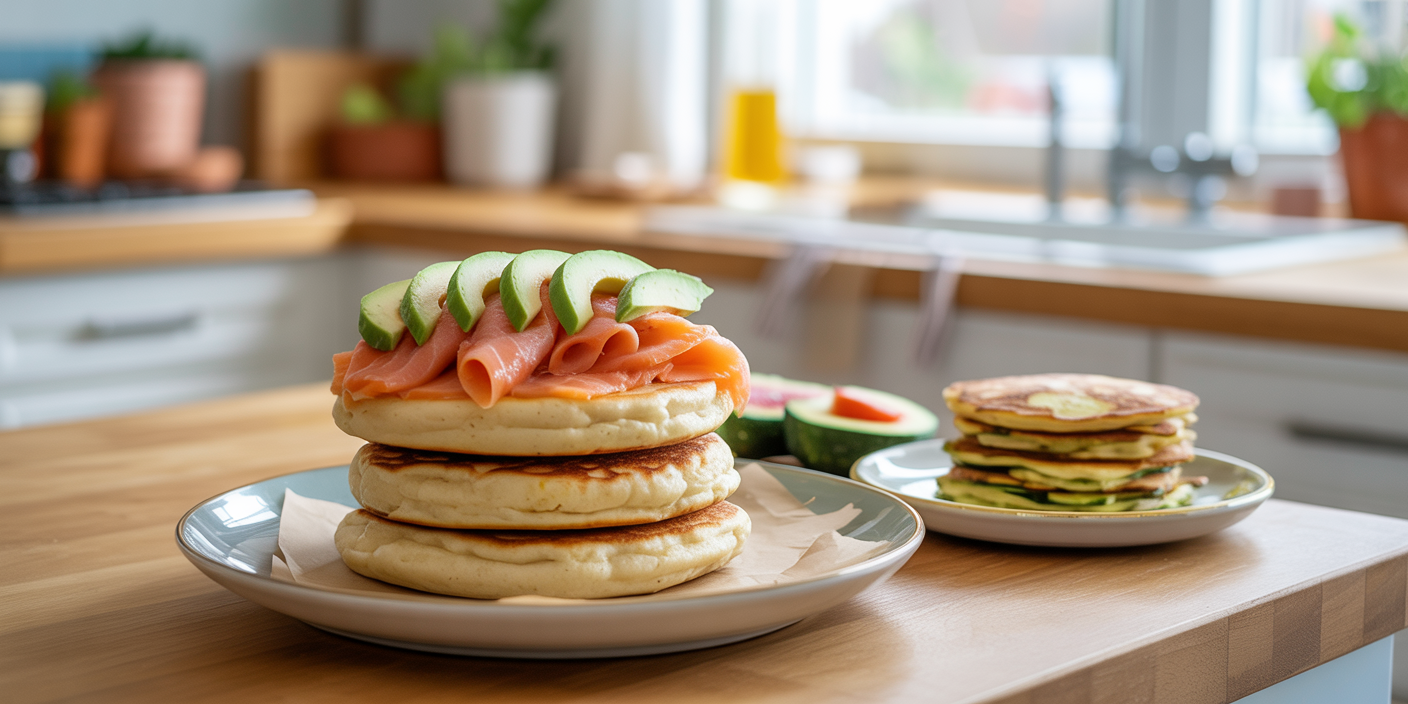Starting your day with a satisfying, low-carb breakfast can be a game-changer, especially for individuals aiming to regulate blood sugar, lose weight, or improve overall metabolic health. Despite the widespread perception that low-carb meals are bland or restrictive, there are numerous delicious breakfast options that not only align with low-carb dietary goals but also tantalize your taste buds. This article explores practical, tasty, and nutritious low-carb breakfast ideas, supported by research and real-life examples to help you enjoy your mornings without compromising your nutritional needs.
Why Choose Low-Carb Breakfasts?
Low-carbohydrate diets have gained significant attention due to their effectiveness in weight management, blood sugar control, and cardiovascular health improvement. A study published in the *Annals of Internal Medicine* found that low-carb diets often lead to greater short-term weight loss and cardiovascular risk factor improvements compared to low-fat diets (Gardner et al., 2018). Starting the day with a low-carb meal ensures stable energy levels by minimizing blood sugar spikes and reducing hunger later in the day.
Moreover, traditional breakfast staples such as cereals, toast, and pastries can contain upwards of 40-60 grams of carbohydrates per serving. For individuals aiming to keep carbohydrate intake within 20-50 grams daily, such options can quickly derail dietary goals. Low-carb breakfasts, in contrast, generally contain fewer than 15 grams of net carbs per meal, making them compatible with ketogenic, Atkins, and other low-carb lifestyle plans.
Adopting flavorful low-carb breakfasts requires creativity and understanding of food swaps—not only cutting carbs but enhancing taste, texture, and nutritional value. Below we delve into specific strategies and recipes that meet these criteria.
Protein-Packed Breakfasts: Start Strong and Satisfied
One of the cornerstone advantages of low-carb breakfasts is their emphasis on protein and healthy fats. Protein-rich foods facilitate satiety and muscle maintenance, which are essential during weight loss or metabolic conditioning. Consider scrambled eggs with spinach and feta cheese—a classic that embodies a low-carb, high-protein breakfast option. Eggs provide roughly 6 grams of protein and just 1 gram of carbohydrates per large egg, while spinach and feta add micronutrients and flavor with minimal carbs.

Another practical example is Greek yogurt topped with nuts and berries. Full-fat Greek yogurt typically contains about 6-10 grams of protein and 4-6 grams of carbs per 100 grams. Pairing it with a handful of berries adds antioxidants and fiber, while nuts contribute healthy fats and crunch, balancing the macronutrient profile. In fact, a study published in *Nutrients* (2019) highlights that a protein-rich breakfast enhances fullness and reduces calorie intake throughout the day, aiding weight management.

Comparative Table: Protein Content vs. Carb Count in Breakfast Staples
| Breakfast Item | Protein (g) per serving | Net Carbs (g) per serving | Calories |
|---|---|---|---|
| 2 large whole eggs | 12 | 2 | 140 |
| 100g full-fat Greek yogurt | 10 | 4 | 120 |
| 30g mixed nuts (almonds) | 6 | 2 | 180 |
| 50g spinach (cooked) | 3 | 1 | 12 |
| 50g mixed berries | 0.5 | 4 | 30 |
This table illustrates how individuals can customize combinations to maximize protein and minimize carbs while keeping meals calorie-appropriate.
Creative Low-Carb Swaps for Traditional Breakfasts
Many crave traditional breakfast textures such as pancakes or toast, yet these staples come loaded with carbs. Fortunately, there are excellent low-carb alternatives that capture familiar flavors without the sugar crash. Almond flour or coconut flour pancakes are popular choices. Almond flour contains approximately 6 grams of carbs per 28 grams (1 oz) but with high fiber content, making net carbs significantly lower than standard pancake flour.
For toast lovers, cloud bread represents a versatile, low-carb substitute. Made primarily from eggs and cream cheese, cloud bread features less than 1 gram of carbs per serving, virtually zero gluten, and a light, fluffy texture. It serves as an excellent carrier for avocado slices, smoked salmon, or poached eggs. Home cooks report that cloud bread retains moisture better than traditional bread, improving the breakfast experience markedly.
Another innovative swap includes zucchini or cauliflower hash browns. These offer a savory, crispy side dish with significantly fewer carbs compared to potato hashes. Zucchini contains only 3 grams of carbs per 100g, primarily fiber, making it suitable for low-carb regimens. Recipes often blend grated zucchini mixed with eggs and cheese for binding, pan-fried to golden perfection.
Vegetables and Fats: Enhancing Flavor and Nutrient Density
A successful low-carb breakfast also integrates healthy fats and vegetables to round out nutrition and flavor. Avocados are an iconic example—they provide approximately 15 grams of fat and a mere 2 grams of net carbs per half fruit. Adding avocado to eggs or blending it into a smoothie enriches satiety and delivers heart-healthy monounsaturated fats.
Sautéed vegetables like mushrooms, kale, or bell peppers add volume, vitamins, and minerals without excessive carbs. For example, kale offers 4 grams of fiber and only 3 grams of net carbs per cooked cup, making it filling and nutritious. Combining these vegetables with olive oil or butter not only improves palatability but delivers essential fat-soluble vitamins (A, D, E, and K).
Consider a spinach and mushroom frittata cooked in coconut oil. This dish can be prepared in advance, making it practical for busy mornings. A study in *Appetite* (2021) suggests that meals high in fiber and healthy fats contribute to improved satiety signals and sustained energy levels, reinforcing the benefits of incorporating such ingredients into breakfast.
Real-Life Examples and Practical Tips
Mary, a 38-year-old teacher, struggled with mid-morning energy crashes and weight gain despite dieting. After switching to low-carb breakfasts like avocado and smoked salmon on cloud bread, and incorporating vegetable-heavy omelets, she noticed improved focus and sustained fullness through her morning sessions. Her success illustrates how upping protein and fat while reducing carbs can enhance cognitive function and metabolism.

Similarly, Carlos, a 50-year-old diabetic patient, worked with his dietitian to adopt a low-carb breakfast routine including Greek yogurt bowls with nuts and cinnamon, along with boiled eggs and sautéed kale. Within three months, his fasting glucose levels improved by 15%, and he reported better hunger management compared to his former carb-heavy breakfast choices.
These examples underscore the applicability and real-world effectiveness of thoughtfully designed low-carb breakfasts tailored to individual preferences and health goals.
Future Perspectives: Expanding Low-Carb Breakfast Horizons
The future of low-carb breakfasts is promising, fueled by continued research and rising consumer interest in metabolic health. Food innovation is poised to introduce more convenient, nutrient-dense options such as low-carb ready-to-eat products, vegetable-based grain substitutes, and functional foods enriched with probiotics and fiber.
Furthermore, emerging technologies like 3D food printing may revolutionize how low-carb meals are designed in the future, allowing personalized macronutrient ratios and textures that cater precisely to individual dietary needs and taste preferences.
Additionally, ongoing studies linking gut microbiome health and diet quality suggest that low-carb breakfasts high in fiber-rich vegetables and healthy fats could become even more integral in preventing chronic diseases and optimizing wellness.
These developments could help dispel myths surrounding low-carb diets being flavorless or complex to prepare, making low-carb breakfasts more accessible and enjoyable for diverse populations.
Low-carb breakfasts do not have to be uninspiring or repetitive. By focusing on protein, healthy fats, and low-carb vegetables and utilizing creative swaps for traditional carb-laden foods, anyone can craft enjoyable and nutrient-packed morning meals. Current evidence supports the effectiveness of such meals in promoting metabolic health and weight control. With continual innovation and personalization, the future holds exciting possibilities for those seeking satisfying and healthy low-carb breakfast options.

Deixe um comentário